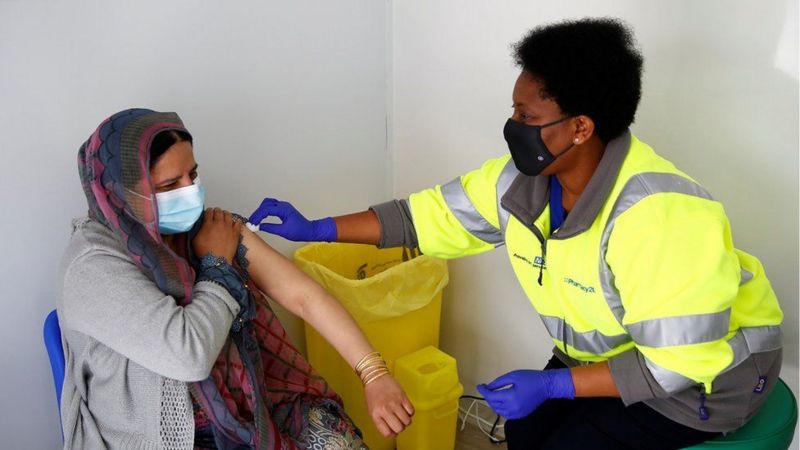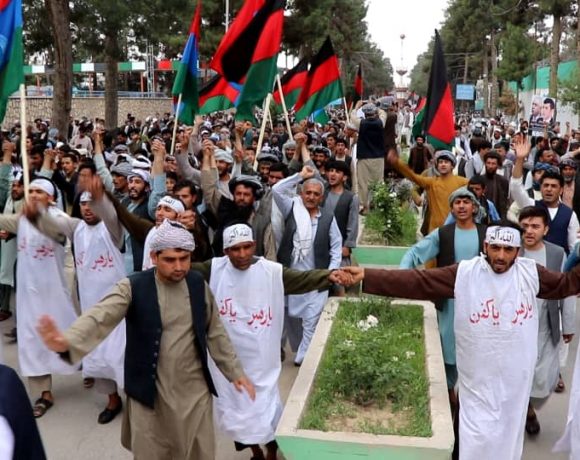Covid: Pfizer and AstraZeneca jabs effective against Indian variant – study

The Pfizer and AstraZeneca coronavirus vaccines are highly effective against the variant identified in India after two doses, a study has found.
Two jabs of either vaccine give a similar level of protection against symptomatic disease from the Indian variant as they do for the Kent one.
However, both vaccines were only 33% effective against the Indian variant three weeks after the first dose.
This compared with 50% effectiveness against the Kent variant.
Public Health England, which ran the study, said the vaccines are likely to be even more effective at preventing hospital admission and deaths.
Health Secretary Matt Hancock said the findings made him “increasingly confident” that the government was on track for the final stage of easing restrictions in England on 21 June.
The data showed that getting both doses of the vaccine was “absolutely vital”, he added.
Home Secretary Priti Patel, speaking on Sky News, agreed the success of the vaccine programme is “enabling us all to live our lives”.
In terms of the further unlocking planned for next month, she said Boris Johnson had been clear that there are “key tests and key stages” in the run-up to 21 June.
“We will always continue to look at the data when it comes to the next stage of the roadmap,” she told Trevor Phillips on Sunday. “That is sensible and responsible.”
The Pfizer vaccine was found to be 88% effective at stopping symptomatic disease from the Indian variant two weeks after the second dose, compared with 93% effectiveness against the Kent variant.
The AstraZeneca jab was 60% effective against the Indian variant, compared with 66% against the Kent variant.
Public Health England (PHE) said the difference in effectiveness between the vaccines after two doses might be explained by the fact that rollout of second doses of AstraZeneca was later than for the Pfizer vaccine, which was approved first.
Other data shows it takes longer to reach maximum effectiveness with the AstraZeneca vaccine, PHE said.
Some 12,675 genome-sequenced cases were included in the study, which took place between 5 April and 16 May. Only 1,054 of those cases were of the Indian variant, known as B.1.617.2.
‘Get your second dose’
Dr Jenny Harries told the BBC’s Andrew Marr Show the study was “very good news”.
The chief executive of the UK Health Security Agency said the study is the “first real-world evidence of vaccine effectiveness” against the variant, showing the vaccine is just as effective after two doses as it has been against the Kent variant.
“The straightforward message is ‘get your second dose’,” she added.
Asked about the discrepancy between the Pfizer and AstraZeneca vaccine results, she said a key factor to consider was that the “different vaccines were given to slightly different groups of people”.
“The Pfizer vaccine was rolled out initially, because it had to be kept at ultra-low temperatures, to – for example – healthcare workers, who tended to be younger,” she said.
“This is an all-age study. Whereas AstraZeneca went out to older groups of individuals who were unable to come into main centres.”
She stressed that “both of these vaccines are really good” and there will be more refinement of the data.

















